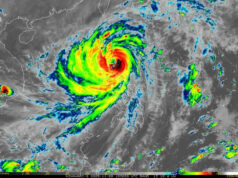Peso hits six-and-a-half month high but ends session weaker
THE peso rallied to a six-and-a-half month high against the dollar in intraday trade on Friday after latest government data showed inflation remained subdued in December, but the local currency pared some of those gains to close weaker against the greenback for a second straight session.
The peso rallied to as much as P49.705 against the dollar in midday trade, its best showing since June 15, 2017, according to Philippine Dealing System data. The local currency was Asia’s third worst performing currency in 2017, losing as much as 0.5% against the greenback, but remained among the region’s “most stable”, the Department of Finance said on Friday.
The intraday gains came after the Philippine Statistics Authority reported that inflation settled at 3.3% in December so that the average for the year, 3.2%, fell within the central bank’s target range for 2017.
Still, traders took profit in late trading and trimmed their holdings in favor of the dollar. The peso-dollar exchange rate settled at P49.865, a depreciation of four-and-half centavos from Thursday’s close.
“Dollar-peso [trading] tried to head [higher in the] morning, but failed to sustain the momentum in the afternoon,” a trader said over the phone on Friday.
“The local currency opened stronger after the release of December inflation rate at 3.3%, sustaining November’s pace which has shrugged fears of an overheating Philippine economy,” another trader said in an e-mail.
“[T]raders took the opportunity for bargain-hunting towards the afternoon so that the peso lost its initial strength.”
The amount of dollars traded rose to $715.7 million from the $519.25 million that changed hands in the previous session.
Ruben Carlo O. Asuncion, chief economist of Union Bank of the Philippines, said the subdued inflation data for December boosted optimism over the local currency.
“I think it’s [inflation] a major indicator that inflation will be manageable in spite of probable spikes,” Mr. Asuncion said in a phone interview on Friday, adding that the spikes will be brought about by the effects of the local tax reform.
“Although we’re not expecting big spikes, there’s still the impact of the TRAIN (Tax Reform for Acceleration and Inclusion Act) on inflation, but it’s going to be short-term rather than something long-term,” he added.
“It’s [inflation data] an indication that 2018 will be okay, so they’re betting on the peso.” — Karl Angelo N. Vidal



